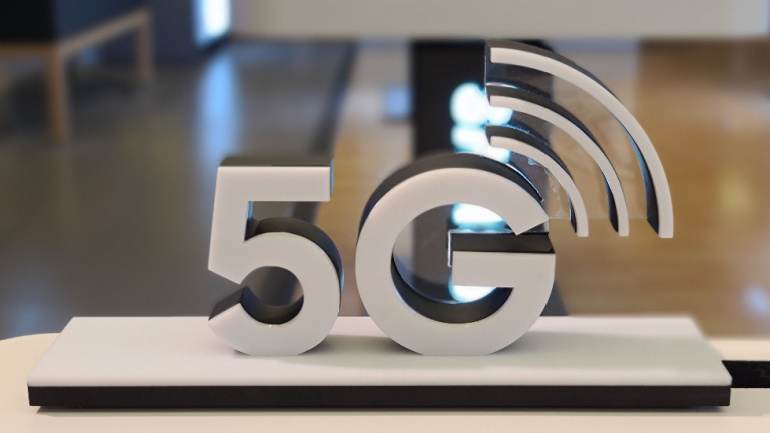EXA Infrastructure, the largest dedicated digital infrastructure platform connecting Europe and North America, and Lancom, one of the fastest growing providers of data centre, cloud, and telecoms services in Greece – today announce their strategic partnership to bolster connectivity and infrastructure services, establishing Greece as a critical link to internet exchanges in Europe.
In a sharp escalation of theft incidents, Philippines operator Globe reported a loss of 834 backup batteries from their network facilities in 2022’s first half. This, they outline, puts localities at risk of service interruptions during power cuts. This surge may be associated with the modern, high-value sodium nickel batteries introduced by Globe. However, it’s more likely tied to the nation’s steep energy prices and increased cost of living. In the face of these challenges, telco operators must devise robust security measures while continuing to innovate on environmental fronts.
The allure of AI technology and its insatiable demand for data is sparking a new interest in fibre backbones. However, this digital evolution is revealing a myriad of challenges for newcomers, with the fibre industry grappling with economic pressures from inflation, supply chain disruptions and rising interest rates. While the European Union’s telecom mergers & acquisitions policy may offer consolidation opportunities, those venturing into this dynamic sector must be prepared for a landscape fraught with potent risk and complexity.
Just under a year ago, the tech world buzzed with anticipation over a new partnership between chip mogul Qualcomm and satellite firm Iridium. The aim? Integrating satellite-to-phone services via Snapdragon Satellite and Iridium’s resources. However, a recent shift in direction caught the industry’s attention. Despite a successful demo, smartphone manufacturers didn’t opt to incorporate this feature, leading Qualcomm to end the agreement. Yet, in the face of disappointment, Iridium remains optimistic, envisaging an industry veering towards greater satellite connectivity. As earthquakes ripple across the telecoms landscape, all eyes await what’s next.
An enthusiastic exploration of advancing telecommunication technologies, particularly 5G and its bigger sibling, 5.5G, was recently exhibited by Huawei’s Antenna Business Unit President, Eric Zhao. Eric emphasizes how competent R&D pursuits are imperative to propel antenna performance, a critical aspect in 5.5G proliferation. He highlights the enhancement of user experience, operational efficiency and service extension as key objectives. Moreover, Huawei’s strides in working towards the goals of unrestricted deployment, zero signal loss, and ‘zero touch’ O&M demonstrate their ambition. Yet, the journey towards these ambitious targets is far from over.
Under the Online Safety Act, UK’s telecoms regulator Ofcom, gears up to reinforce online safety, focusing on protecting vulnerable users, especially children. Their proposed laws call for tech firms’ accountability, ensuring a thorough content governance to curb harmful material. They seek stakeholder feedback on their initial codes against illegal harms online, marking the end of harmful content and the dawn of user safety.
The Global Coalition on Telecommunications (GCOT), launched by the UK, Australia, Canada, Japan, and the US, intends to revolutionize telecommunications through joint R&D, funding alignments, and standard development. Offering insights into the initiative’s broad scope, TMT partner Julian Cunningham-Day highlights the coalition’s focus on supply chain diversification and market competition through Open RAN. Despite the promising advantages, potential vulnerabilities may arise from industry-wide open standards. Additonally, GCOT’s emphasis on yet to be realized 6G technology signals its proactive stance towards future complexities.
Ofcom has cemented plans to propel UK’s 5G coverage by introducing the nation’s first millimetre-wave (mmWave) spectrum auction. This will span the robust 26GHz and 40GHz spectrum bands, targeting faster 5G speeds across 68 UK towns and cities. Interestingly, mmWave 5G promises impressive speed and capacity upgrades, but struggles with range and penetrability, making it ideal for densely populated areas. The auction awaits a verdict on a key industry merger before commencement.
DIDWW, a global telecoms provider specializing in top-quality VoIP communication and SIP trunking solutions for businesses and telecom carriers, has announced the coverage expansion of its emergency calling services. With the inclusion of Chile, Estonia, and the UK, the DIDWW SIP service now offers emergency calling capabilities in 29 countries, spanning regions across Europe, Oceania, and the Americas.
Navigating controversy and complex negotiations, Rogers Communications’ acquisition of Shaw Communications, perhaps unexpectedly, resulted in significant job cuts. Amidst skepticism and fears of further layoffs, Rogers remains steadfast in their stance, insisting on their commitment to job creation. However, the telecommunications landscape is a convoluted jigsaw, and this merger has merely revealed another challenging piece.













